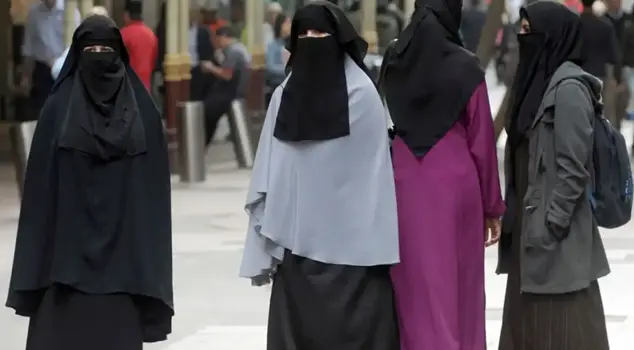
18.10.2025 18:31
The Portuguese Parliament has approved a bill that bans the wearing of face-covering garments such as veils and burqas in public spaces. The regulation, which is submitted for the signature of President De Sousa, will, if enacted, place Portugal among the European countries that impose restrictions on face coverings. According to the law, those who cover their faces in public will face fines of up to 4,000 euros.
```html
The Portuguese Parliament has approved a bill that bans the wearing of face-covering veils and burqas in public spaces for religious or gender-based reasons. The bill, presented by the far-right Chega Party, also received support from center-right parties.
FINES OF UP TO 4,000 EUROS
The approved regulation prohibits the use of clothing that completely or partially covers the face, such as veils, burqas, and niqabs, in public areas. However, places of worship, diplomatic missions, and airplanes are excluded from the law. According to the law, individuals covering their faces in public can face fines of up to 4,000 euros.
PRESIDENT'S APPROVAL IS REQUIRED
The bill will be submitted for approval to President Marcelo Rebelo de Sousa before it comes into effect. Among de Sousa's options are to sign the law, veto it, or send it to the Constitutional Court for review.
"COVERING THE FACE DEGRADES WOMEN"
The Chega Party, which prepared the bill, argued that covering the face puts individuals in a state of "exclusion and humiliation." The party stated that the aim of the bill is to "put an end to practices that are incompatible with freedom, equality, and human dignity."
STRONG REACTION FROM THE OPPOSITION
Leftist parties and the center-left Socialist Party opposed the law. Socialist MP Pedro Delgado Alves stated that the regulation "targets individuals with different beliefs," adding, "No woman should be forced to wear a veil, but this law restricts women's freedom of choice."
CALLS FOR SIMILAR BANS IN EUROPE
The decision in Portugal, which is also implemented by France, Belgium, Austria, and the Netherlands, has sparked a new debate in a country where the number of women wearing veils is quite low. In the same week, similar calls emerged in Sweden and Italy.
Swedish Deputy Prime Minister and leader of the Christian Democrats, Ebba Busch, called for a "ban on veils and burqas in public." Busch argued that these garments "hinder communication with society and social cohesion."
Italian Prime Minister Giorgia Meloni similarly requested a ban on veils and burqas under the pretext of "fighting Islamic separatism." Meloni's party presented a bill to parliament proposing fines ranging from 260 to 2,600 euros for those wearing these garments in public.
```